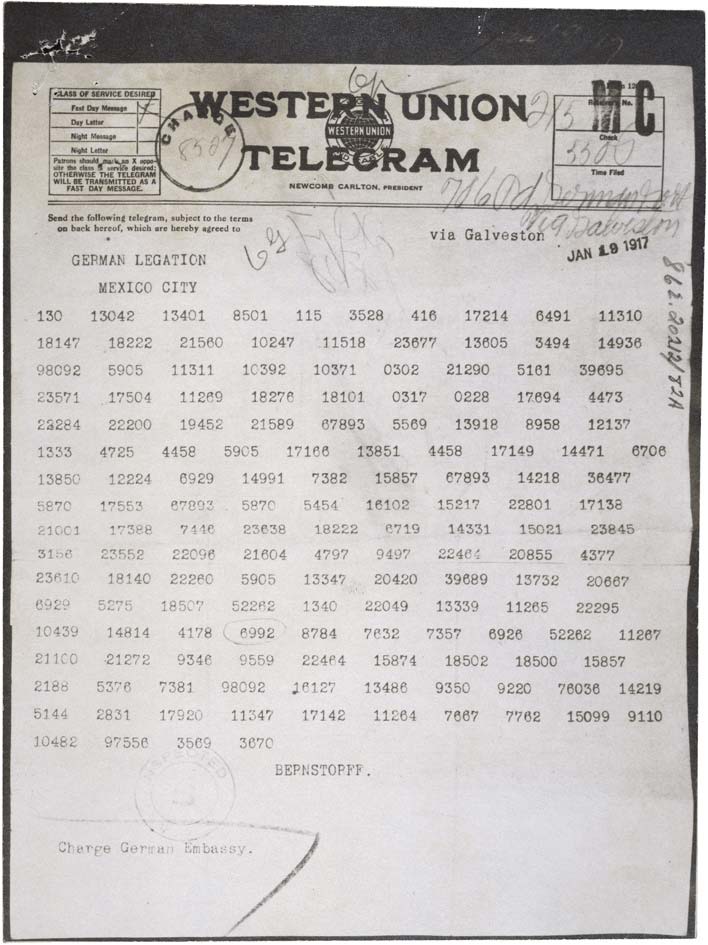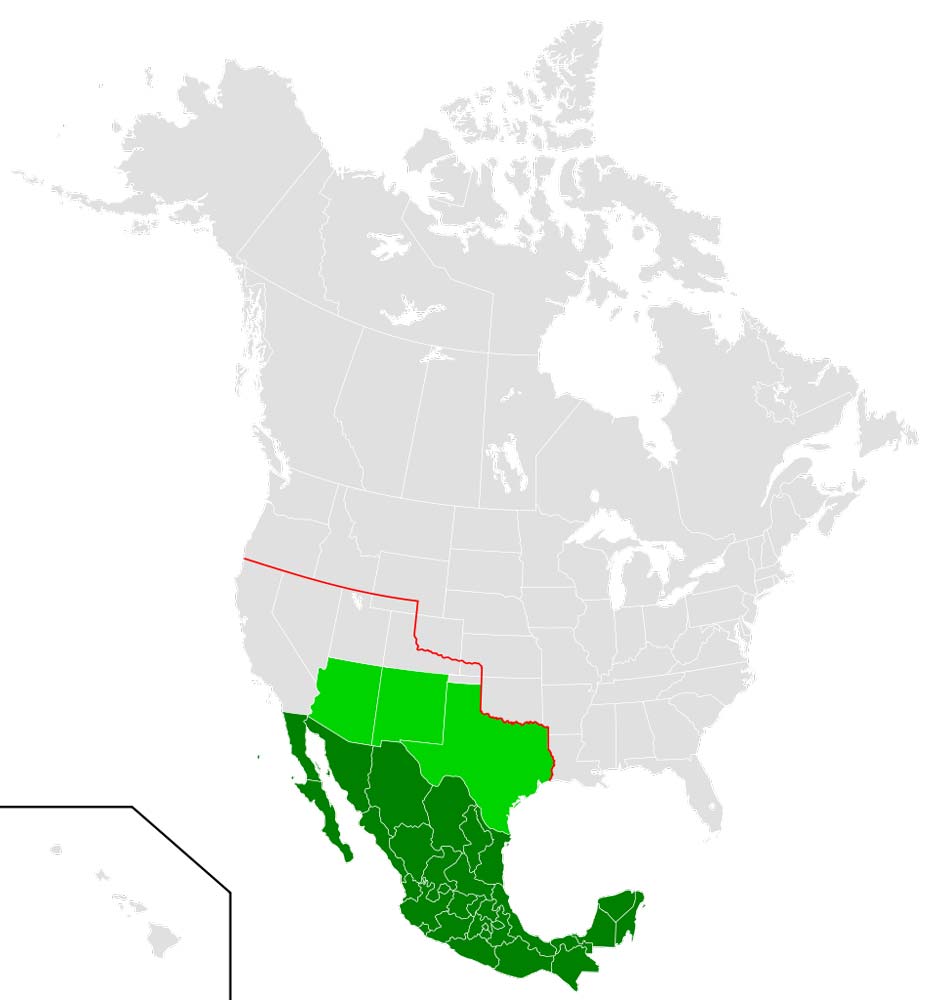Germany’s issuing of the Zimmermann Note (also called the Zimmermann Telegram) during The Great War (WWI) would be among the most disastrous plans in the history of warfare. The United States had maintained a desire to stay remain neutral. However, after a clear and present danger to homeland security was revealed when the telegram was discovered, the United States decided to enter the war. As soon as the U.S. entered the fray, the tide would change and Germany and its allies would head down the path of defeat.
The Contents of the Telegram
On January 16, 1917, Arthur Zimmermann, Germany’s Foreign Secretary, sent a coded message to the German consulate in Mexico. Within the contents of the telegram, the decoded message suggested that Germany form an alliance with Mexico. Germany promised that it would completely fund a Mexican invasion of the United States if the US were to enter into the war against Germany.
 Abbreviated versions describing the Zimmermann letter make it seem as if Germany was promoting an arbitrary invasion of the United States, which would be a senseless act. When reviewing the full details of the events surrounding the Zimmermann Telegram, it becomes obvious that Germany’s intention was to bog down the United States on a domestic war. This would make it impossible for the United States from committing its troops to the European theater.
Abbreviated versions describing the Zimmermann letter make it seem as if Germany was promoting an arbitrary invasion of the United States, which would be a senseless act. When reviewing the full details of the events surrounding the Zimmermann Telegram, it becomes obvious that Germany’s intention was to bog down the United States on a domestic war. This would make it impossible for the United States from committing its troops to the European theater.
The note was intercepted by Great Britain and the message was decoded. Once the contents of the message were revealed to the public, a U.S. declaration of war was inevitable.
Mexico and the Zimmermann Note
 Before delving into more of the history of the Zimmermann Telegram, it is necessary to point out Mexico’s reaction or, more accurately, Mexico’s disinterest. Basically, the Mexican government did not want to go to war. Germany though it could make a tremendous offer: in the event the U.S. lost the war, Germany would ensure Mexico regained its lost territories of Arizona, Texas and New Mexico. Again, Mexico was not interested in any war with America. After the contents of the telegram were revealed, Mexico issued a public denunciation of it.
Before delving into more of the history of the Zimmermann Telegram, it is necessary to point out Mexico’s reaction or, more accurately, Mexico’s disinterest. Basically, the Mexican government did not want to go to war. Germany though it could make a tremendous offer: in the event the U.S. lost the war, Germany would ensure Mexico regained its lost territories of Arizona, Texas and New Mexico. Again, Mexico was not interested in any war with America. After the contents of the telegram were revealed, Mexico issued a public denunciation of it.
U-Boat Warfare
Tensions between the U.S. government and Germany were very strained over U-Boat (submarine) warfare that was being conducted on the high seas. On May 7, 1915, a German U-Boat sunk the ship the Lusitania off the coast of Ireland. Roughly 128 Americans were killed. This created major outrage among the American populace and almost changed the public opinion about staying out of any wars in Europe.
There were agreements reached between Germany and the U.S. that Germany would cease unrestricted U-Boat warfare. By 1917, however, Germany was taking the steps to greatly expand U-Boat warfare on the high seas. Such activity would surely have brought the United States into the war. Again, if the U.S. did declare war on Germany due to increased U-Boat warfare, a military conflict with Mexico would force the U.S. to defend its home front.
Woodrow Wilson and a Policy of Non-Intervention
President Woodrow Wilson adhered to the Progressive mantra of non-intervention. This means the foreign policy of the United States would greatly limit its entry into conflicts between other nations. During the early 20th century, the American populace was not interested in foreign wars. However, The Great War had broken out in Europe and was spreading to other parts of the globe. It seemed that the United States might have to be pulled into the war. Wilson resisted entry and ran for and won reelection on the basis that he would keep the U.S. from entering into the war.
When the public learned about the Zimmermann Telegram, the public was outraged. The American people had already experienced numerous major wars since the founding of the nation and were not interested in errantly entering another. However, American people were not going to ignore a provocative action such as the Zimmermann Note.
While Wilson was a proponent of entering World War I, he was certainly not going to ignore Germany’s desire to provoke a war between America and Mexico. Wilson was also not going to tolerate unrestricted U-Boat warfare, which was greatly threatening American interests and lives.
A Declaration of War is Sought
On April 2, 1917, Woodrow Wilson made a War Decree speech to Congress. He made it clear he wished to wage a war to end all wars and save western civilization from destruction. On April 4, 1917, Congress passed a Declaration of War against Germany. Two days later, the Wilson signed the law and the US entered World War I.
